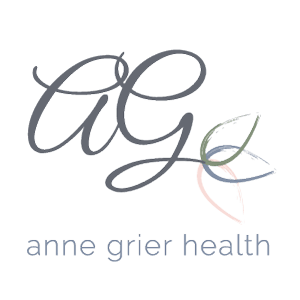How to strengthen your immune system?
How do you get a strong immune system? This question peaks our interest right now. Your immune system is one of the only defenses you have against the outside world. Most likely your immune system is already quite strong but might just need a little support.
Strengthening the immune system won’t happen with a few supplements. Supplements do work to synergistically increase the strength of the immune system but several lifestyle priorities need to take precedence in your life. Nutrient dense nutrition, sleep, exercise, stress reduction and gut health must not be ignored when striving for a strong immune system.
Take a good look at your nutrition to strengthen your immune system.
Prioritize eating real foods to strengthen your immune system by eating a variety of colors in vegetables and fruits, animal based proteins, healthy fats, avoiding alcohol, sugar and inflammatory oils (canola, margarine, sunflower, and omega-6 seed oils). Food truly is medicine and getting our vitamins and minerals from food is ideal. Likely some targeted supplementation will be necessary, but let’s start with food sources. Key vitamins and minerals for strong immune function are discussed below, first in the food forms and then ideas for supplementation of the vitamin or mineral with dosing.
Vitamins and Minerals to strengthen your immune system:
Vitamin C is one of the most important antioxidants as it donates an electron to neutralize free radicals in the body. Free radicals create damage in the body when left alone. Vitamin C can significantly reduce the incidence and severity of respiratory infections.(1) This water soluble vitamin packs a punch and any excess the body will excrete through urination. The top vitamin C foods to incorporate into your diet: papaya, citrus fruit, strawberries, bell peppers, broccoli, kale, kiwi and guava.(2) Dosing for a Vitamin C supplement reported by the NIH are as follows but in time of illness higher dosing is likely safe (3).
- 1-5 years: 125-250mg daily
- 6-12 years: 250-500mg daily
- 13-18 years: 500-1000mg daily
- 19+ years: 500-1000+mg daily
Glutathione is our “master antioxidant” produced by the liver. Glutathione increases natural killer cell activity (our first line of defense against viral and bacterial infections) (4) and strengthens our immune response to all invaders.
Glutathione without supplementation can be sourced from cruciferous vegetables (kale, broccoli, cauliflower, cabbage, brussels sprouts, bok, choy, swiss chard, arugula, collard greens, mustard greens, watercress and radish), mushrooms, garlic, onions, asparagus and spinach. (5) Supplementation is best in the liposomal form or its precursor, N-acetycysteine, as oral glutathione is not absorbed well by the gut. My favorite glutathione supplement is HERE. Dosing is as follows according to Dr. Elisa Song, MD. (5)
- 1-5 years: 50mg daily
- 6-12 years: 100mg daily
- 13-18 years: 200mg daily
- 19+ years: 250-500+mg daily
Vitamin D is highly valuable in overall health and wellbeing. While it promotes bone health and healthy calcium absorption it also plays a huge role in strengthening the immune system. The active form of vitamin D is a major player in maintaining immune homeostasis (6). Many studies have shown worse outcomes of respiratory viruses in those with Vitamin D deficiency. (7)
The best source of Vitamin D is sunshine on skin without sunscreen, obviously without allowing it to burn. Since this is not always possible the best food sources are salmon and fatty fish, egg yolks, beef or chicken liver, grass fed butter or cheese and a small amount in mushrooms (8). Supplementing with Vitamin D should include D3/K2 in a specific ratio. Vitamin D regulates calcium levels in the blood and vitamin K directs it into the right place such as the bones and teeth. The dosing for Vitamin D supplements will depend on your blood value of 25-OH Vitamin D. This is an important one to get checked so if you are deficient you can supplement appropriately and increase your values to be between 50-90 ng/ml (5,9)
Vitamin A is also an antioxidant along with vitamin C and glutathione which help us get rid of free radicals and recover more quickly when ill. Vitamin A deficiency has been associated with increased risk for infections including influenza, and one study suggests that vitamin A deficiency can be considered a nutritionally acquired immunodeficiency disease (10). Vitamin A is also important for eye health, reducing inflammation, skin and bone health as well as immune health.
Foods rich in vitamin A are liver, carrots, sweet potato, kale, broccoli, butter, eggs, red & yellow peppers, apricots, cantaloupe, mango, butternut squash and tuna. (5)
For supplementation the following dosages are based on the Recommended Daily Allowances and Upper Tolerable Intake level of vitamin A per the Food and Nutrition Board of the US Institute of Medicine. (12)
- 0-3 years: 1000-2000 IU daily
- 4-8 years: 1500-3000 IU daily
- 9-13 years: 3000-5000 IU daily
- 14+ years: 5000-10,000 IU daily
Zinc is a foundational mineral that is essential to human and animal growth and has an essential role in the development of hormones and immune molecules. Zinc is one of the best mineral supplements to boost and balance out a tired an overburdened immune system. Zinc has been found to “tap the brakes” on the immune system so that it doesn’t create large amounts of inflammation that are difficult to recover from (14). Roughly 25 % of the world’s population is zinc deficient. Poor blood sugar regulation, eating a diet high in processed carbohydrates and sugar and having poor gut health all contribute to zinc deficiency (13).
Foods high in zinc are pumpkin seeds, beans, grass fed beef, lamb, sesame seeds, lentils, cashews, eggs, organic poultry, liver, raw sprouts, spinach and garlic (5).
Supplementing with zinc in high doses can cause copper depletion so best to take the two together or monitor your copper levels. The dose suggestions below are based on the Tolerable Upper Intake Levels reported by the NIH (15).
- 0-1 years: 4-5 mg daily
- 1-3 years: 5-10 mg daily
- 4-12 years: 10-25 mg daily
- 13-18 years: 25-35 mg daily
- 19+ years: 400-1000 mg daily
Quercetin offers antioxidant support, strengthens immune health, supports healthy skin, improves histamine response and improves the inflammatory response in the body. Quercetin desires to donate it’s free electron to free radicals which helps to suppress the damage that would otherwise occur from the free radical. “Quercetin is like a peaceful child that gives up his toys to satisfy the demands of another. As a result, the classroom of napping toddlers remains blissfully unaware of the disturbance that one child created” (16).
Food sources of quercetin are elderberries, red & white onions, capers, apples & pears (with skin), kale, red wine, red grapes, green & black tea, blueberries, cranberries, dark cherries and dark tomatoes (16).
Supplementing with quercetin: (5)
- 2-4 years: 50mg daily
- 4-8 years: 50-100mg daily
- 8-12 years:100-200mg daily
- 12-18 years: 200-400 mg daily
- 19+ years: 400-1000mg daily
Sleep should be highly valued and made a priority. We are tempted by the newest Netflix series or mesmerized by social media on our phones but in the evenings we need to exercise discipline so that we can get the adequate amount of sleep to repair, detox and allow our immune systems to work. Our immune system has specialized cells, known as T cells, which work to recognize and kill infected cells. These cells work more effectively during sleep. Also cytokines, which are chemical messengers that signal further immune response between cells are both produced and released during sleep making sleep ever more critical for a strong immunity. Read another blog post about how to get better sleep HERE
Stress must be managed. Stress will always be present but it must be managed. Allow for stress to happen, process, be felt and work on ways to reduce the presentation of stress in the body. How you might ask? Meditation, exercise, breath work, tapping, cold therapy, journaling, taking a walk, talking to a friend, or anything that you feel works for you. And by “works” I mean take your body from the sympathetic state (flight or fight) to the parasympathetic state (rest and digest). The immune system will not function as it should when under constant stress. For more on this read past blog HERE
Exercise within your energy level needs to happen daily and ideally outside in fresh air. I am someone who loves to exercise. I love to sweat, I love the endorphins that I feel when I’m done with a workout. For me, I don’t always listen to my body when it’s tired and could actually need less exercise for a couple days. This is why I say exercise within your energy levels. Incorporate a regular exercise routine with outside movement and lifting weights but listen to how your body responds and take rest to recover and get the most benefit from your workout. Overdoing exercise can weaken your immune system, just as not exercising enough can as well. As with many things there is a “goldilocks” place and it will be different for everyone.
Gut health is, in my opinion, the most important part of your immune strength.
You often hear the phrase, “you are what you eat” but quite honestly you are what you absorb. If your gut health is suffering then you likely are not absorbing nutrients from either foods or supplements. 70% of the immune system lives within the gut. (17)
Our gut microbes are in constant communication with the part of the immune system located in the intestine. These “conversations” help the body know the difference between a harmless food and a contaminated one. Many of us struggle from dysbiosis or an imbalance of good and opportunistic gut microbes, this causes the gut and therefore the immune system to suffer. If you are struggling with gut symptoms such as bloating, gas, constipation, diarrhea, skin rashes, brain fog and food intolerances let’s take a look through functional testing to see what’s going on to give us direction to heal your gut.
I just want to reiterate that your body is strong and resilient and your immune system is working right now and always to protect you. Believe in the strength of your body but also do what you can to support it through everything I have talked about. And please reach out if you need support in any of these areas, nutrition, gut health and targeted supplementation. I’m passionate about helping your body thrive!
Sources:
1. https://pubmed.ncbi.nlm.nih.gov/15605943/
2. https://drjockers.com/health-benefits-liposomal-vitamin-c/
3. https://ods.od.nih.gov/factsheets/vitaminC-HealthProfessional/
4. https://pubmed.ncbi.nlm.nih.gov/24791752/
5. https://healthykidshappykids.com/2020/04/04/pediatricians-pandemic-immune-support-plan/
6. https://drjockers.com/vitamin-d-deficiency/
7. https://pubmed.ncbi.nlm.nih.gov/32252338/
8. https://drjockers.com/vitamin-d-deficiency/
9. https://pubmed.ncbi.nlm.nih.gov/32605780/
10. https://pubmed.ncbi.nlm.nih.gov/9168553/
11. https://pubmed.ncbi.nlm.nih.gov/11375434/
12. https://nap.edu/read/10026/chapter/6
13. https://drjockers.com/15-zinc-deficiency-symptoms/
14. https://www.sciencedaily.com/releases/2013/02/130207131344.htm
15. https://ods.od.nih.gov/factsheets/zinc-healthprofessional/#h8
16. https://drjockers.com/quercetin/
17. Love Your Gut by Dr. Megan Rossi

